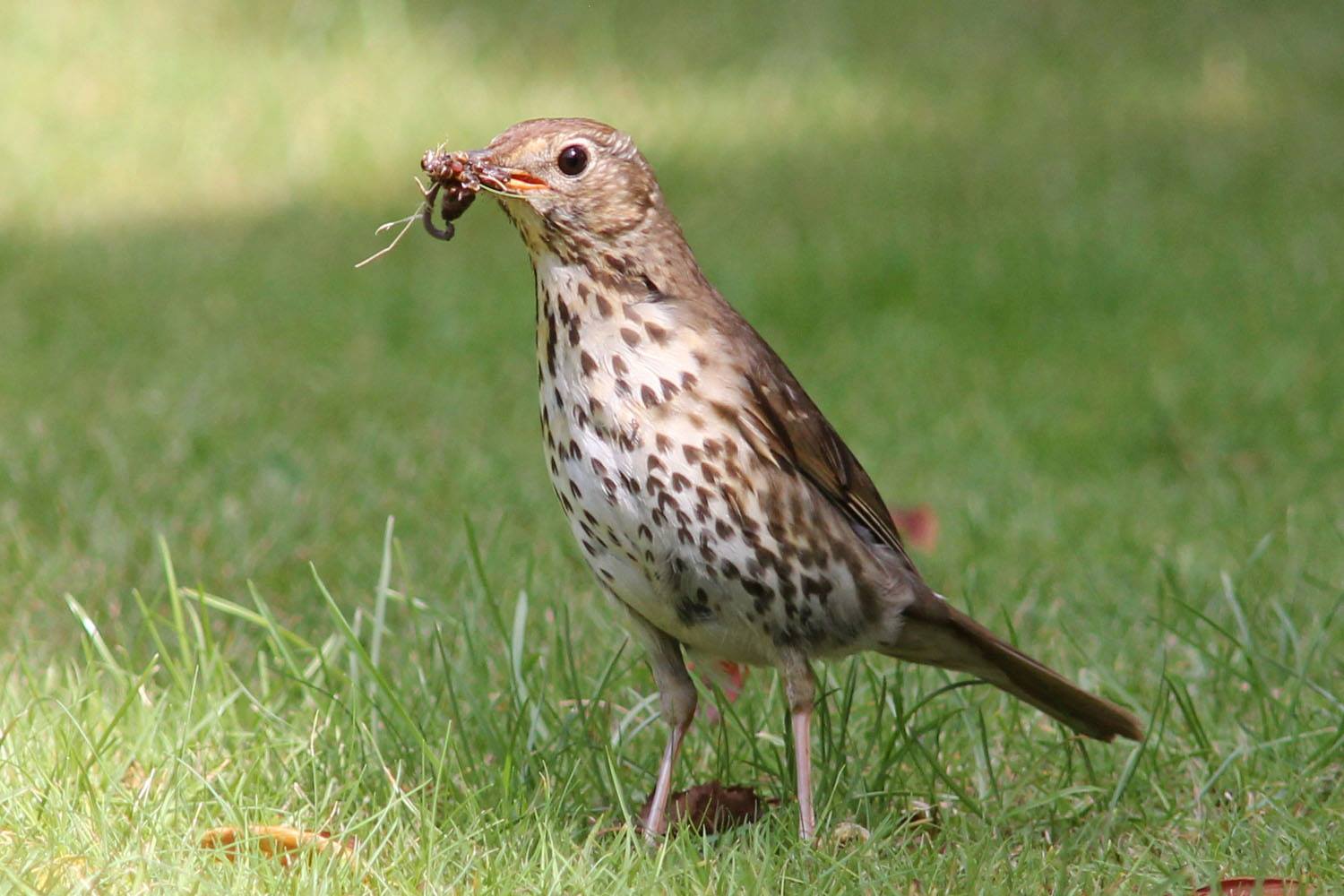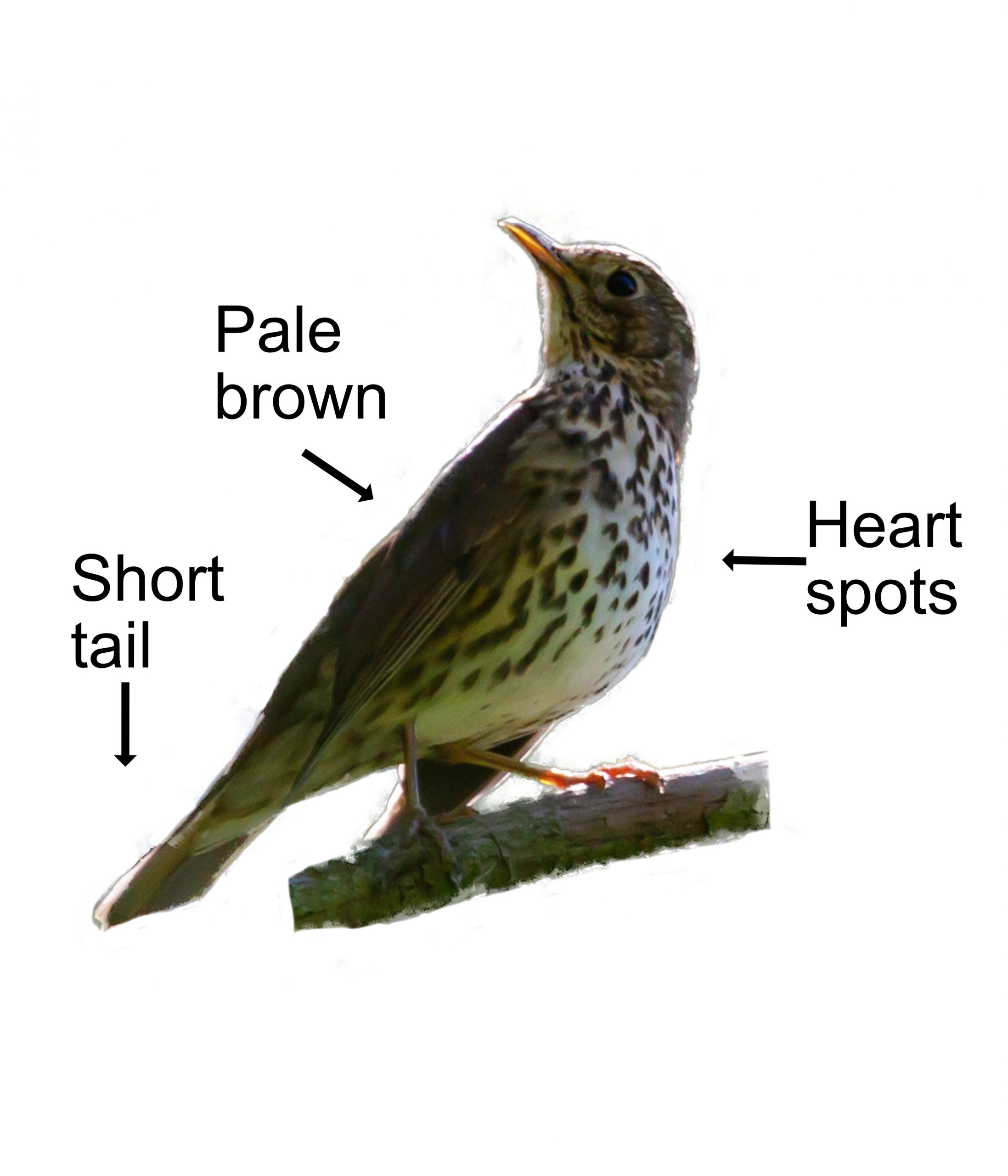
The Song Thrush is the operatic tenor of the bird world. Found in gardens, parks, woods, and hedgerows - any stage where they can sing to a good audience. The Song Thrush is stocky with a relatively short tail. It is pale brown above with creamy buff under parts covered in black v-shaped spots (that look like upside down love hearts for all his adoring fans). They show an orangey underwing when flying, with their rapid and direct no nonsense flight, to get to their next concert venue as quickly as possible.

The Song Thrush has a far carrying, musical song that is rich with flutey notes. It sings in short phrases that are often repeated in threes or fives just in case you didn't get it the first time. They can have an extensive operatic repertoire of over 100 songs from Puccini to Wagner. They sing mainly during the day and also at dusk after most other birds have finished, as a good opera can go on a bit. The Song Thrush sings mostly from March to July and briefly in the autumn - for charity concerts. The Song Thrush flicks its wings when excited.
The Song Thrush feeds under trees and bushes and is seldom far from cover. Their favourite food is snails (escargot) which you would expect from such a musical prima donna. The snails are opened by banging them on a rock. They will eat other insects and especially a good juicy worm. They change the menu to more fruit in the autumn and winter when there are fewer insects around.
The female Song Thrush builds the nest in a tree or bush close to the trunk (the male is too busy signing autographs). It is made of twigs, grass, and moss and is lined with mud. She lays up to 5 eggs which hatch after 15 days. Both parents feed the young who leave the nest after 13 days. The youngsters are quickly independent and soon busy signing up for their own record label. The Song Thrush will sometimes have a second brood.
There are 1 million birds in Britain which are both migrant and resident. Many from Scotland and Northern Britain overwinter in Ireland. Some from Southern Britain go to France and Spain. The numbers of Song Thrush are, sadly, falling and they are on the 'red list'. It seems many youngsters are not getting through their first winter because of agricultural intensification and changes in hedgerow and woodland management. Their Latin name is ’turdus philomelos’ where ’turdus’ means 'thrush' and ’philomeos’ refers to a character in Greek mythology, Philomela, who had her tongue cut out, but was changed into a singing bird to make up for it.